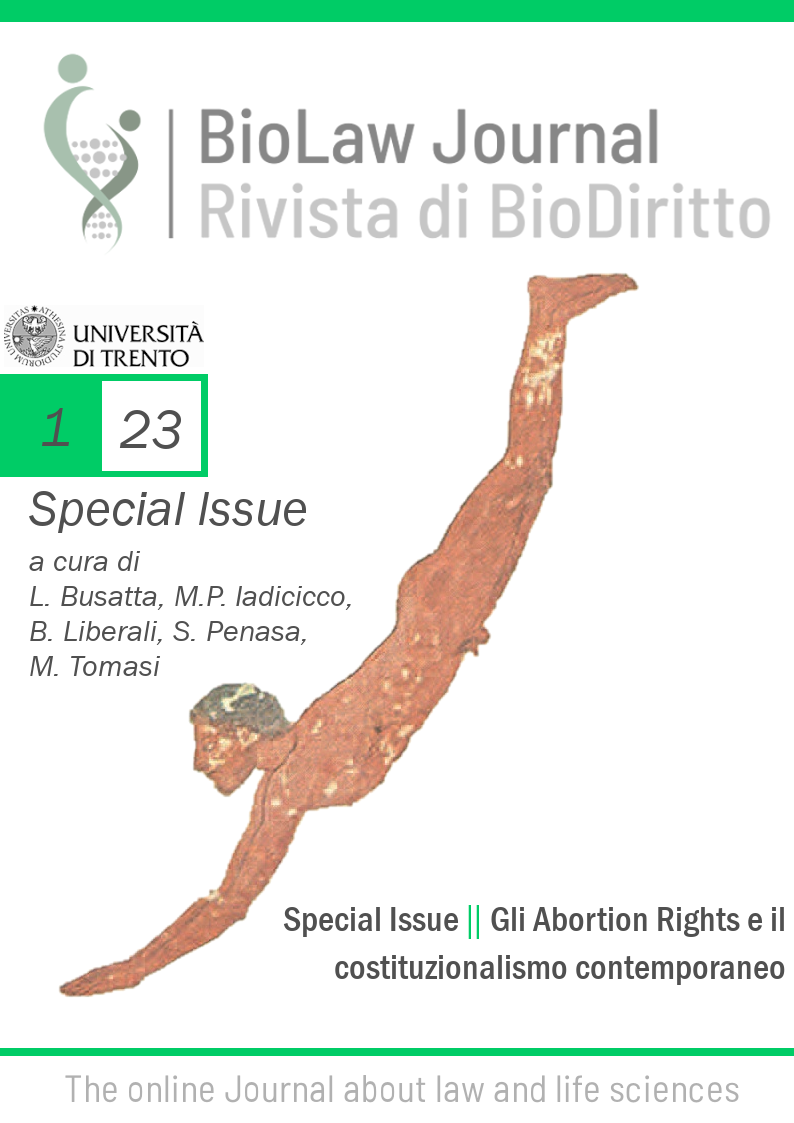Dobbs v. Jackson: the last transformation of originalism passes through women’s bodies
DOI:
https://doi.org/10.15168/2284-4503-2589Keywords:
Women’s rights, right to abortion, precedents, stare decisis, common lawAbstract
The doctrine of precedents reflects common law legal culture, which believes that judges should be guided by principles inductively derived from judicial experience and animated by modesty and respect for tradition. However, in the Dobbs v. Jackson Women's Health Organization case, the Supreme Court questioned this view of stare decisis. It offered an alternative vision, highlighting the limitations of relying on precedents in constitutional argumentation. This approach to stare decisis is consistent with the argument that questions the legitimacy of non-originalist precedents. Against this backdrop, the article makes a twofold claim. Firstly, it argues that originalism advances an interpretation of constitutional law that significantly curtails women's rights. Secondly, it maintains that the current Supreme Court is not equipped to resist the originalist trend because of the lack of political feminism approach of the kind advanced by the late Justice Ginsburg. To support this argument, the article analyzes Dobbs by focusing on the originalist justification for overruling Roe v. Wade and highlights the consequences of the dogmatic approach of originalism on women's claims.
Downloads
Published
How to Cite
Issue
Section
License

This work is licensed under a Creative Commons Attribution-NonCommercial-NoDerivatives 4.0 International License.





